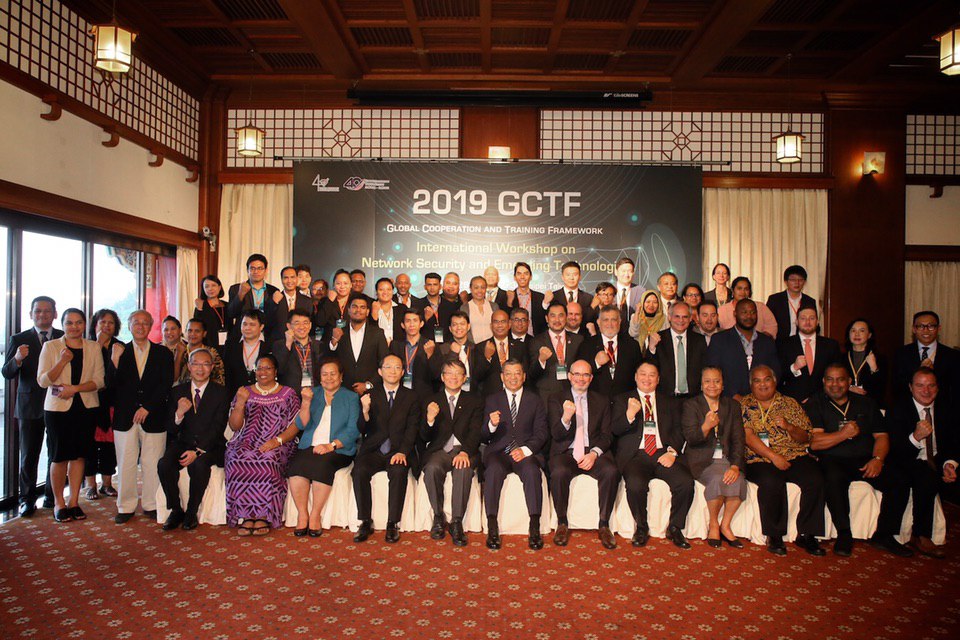OT-1929
May 28, 2019
Remarks by AIT Deputy Director Raymond Greene
at Opening Ceremony of GCTF on
Network Security and Emerging Technologies
May 28, 2019
(As Prepared for Delivery)
Deputy Minister Hsieh, Senior Advisor Lee, Department of Homeland Security Director Kolasky, Institute for the Information Industry President Cho, ladies and gentlemen, good afternoon!
It is my great honor to be here today to help open this workshop on Network Security and Emerging Technologies. This event is taking place under the umbrella of the Global Cooperation and Training Framework, a multilateral platform for helping build cooperation between Taiwan and the rest of the world aimed at global problem solving. The problems facing the world know no boundaries or diplomatic protocols, and they can only be solved through all of us coming together. We are particularly pleased that this workshop is being co-hosted by Japan, which has been a leader in network security. We are also especially happy both Chile and Mexico have joined us this week, a first for the GCTF. Our hope is that the GCTF emerges into an expanding multilateral mechanism for ever-closer integration of all economies in the broader Indo-Pacific.
Taiwan has a tremendous amount of valuable experience to share, and nowhere is this more true than when it comes network sececurity and emerging technologies. This GCTF brings together 41 participants from 25 Indo-Pacific partners to discuss arguably the most important topic in the technology world today. Security cannot be an afterthought in the development of emerging technologies, it has to be the foundation. Just as we cannot have a vibrant economy without physical security, so too we cannot have a dynamic digital economy without network security.
As you all know, the United States is quite concerned with network security, especially when it comes to 5G. We’ve been working around the world to make sure that everyone understands the risks. Of course, every nation, every private company gets to make its own choices about how to respond to these risks, but our experience has been the more people have the facts – and understand their implications – the more a consensus emerges about what to do.
One of the goals of this workshop is for the United States to share its perspective – and answer your questions about these important topics which affect us all. We have brought to Taiwan some of our foremost experts on network security and emerging technologies from the Department of Homeland Security, the Department of State, the Federal Communications Commission, law enforcement and others. In fact, in all of the previous GCTFs we have done, never have we assembled such a large and high-level cast of expert trainers. I encourage all of you to take advantage of their presence to ask tough questions and to learn from one another. We must all work together to ensure that the emerging digital economy is one that is safe, consistent with democratic values, and works for all.
As many of you know, earlier this month the United States met with our European allies to discuss network security in the 5G age. From that meeting emerged the “Prague Proposals,” which are basic principles like-minded countries agree upon when thinking about the future of network security and emerging technology. In the Indo-Pacific, Japan and Australia have already endorsed the Prague Proposals. We are very pleased to hear that Taiwan is also endorsing them. The reality is Taiwan has already been living by these principles for the last six years because it understands first hand the risks of not doing so. It is our sincere hope that these proposals become the bedrock for a democratically consistent digital economy around the world. Every country gathered here today is likewise invited to study these proposals, reflect upon their value, and similarly affirm them as Taiwan has done.
Ultimately, the success of this workshop will be measured by whether all of you remain in close contact with each other after the workshop is over. In this regard, we understand later in this training the Taiwan side will be detailing two proposed mechanisms for on-going cooperation between all of our economies – an Indo-Pacific Cybersecurity Policy Forum and an Internatinal Cybersecurity Center of Excellence on Network Security and Emerging technologies. We look forward to hearing more about what Taiwan has in mind.
Once again, I thank all of you for coming to this important workshop.
















![Video Thumbnail [Recovered]-01](../wp-content/uploads/sites/269/Video-Thumbnail-Recovered-01-1-750x450.jpg)





